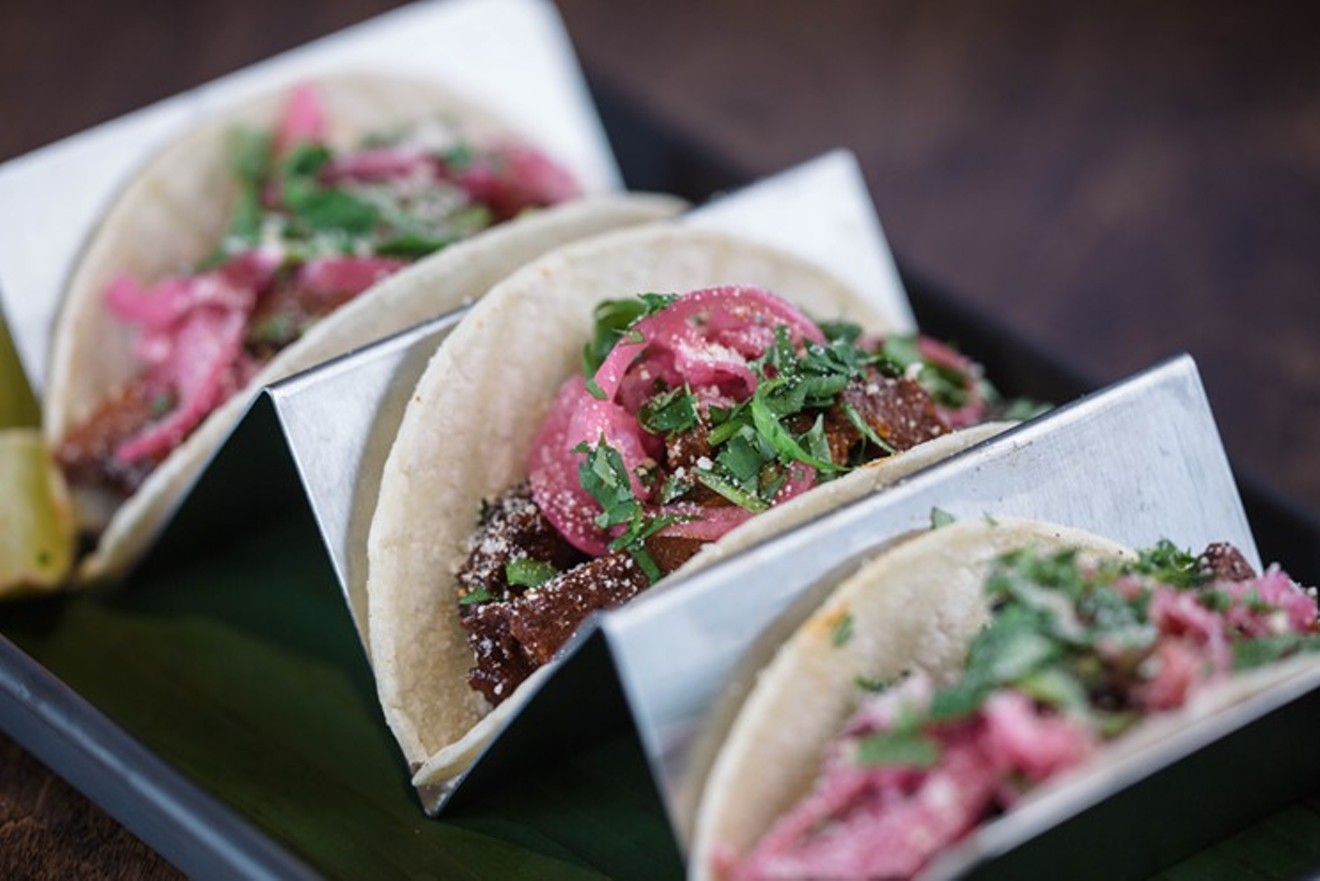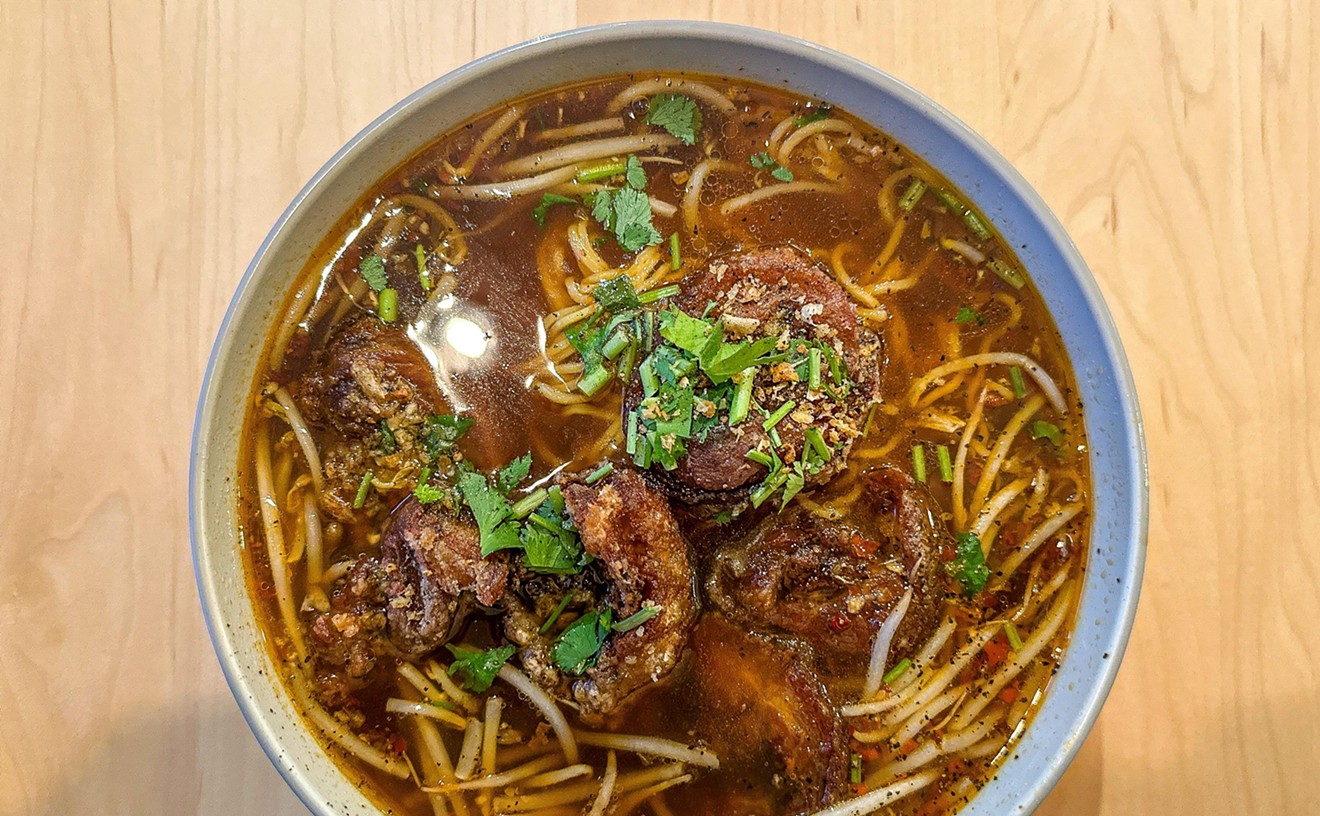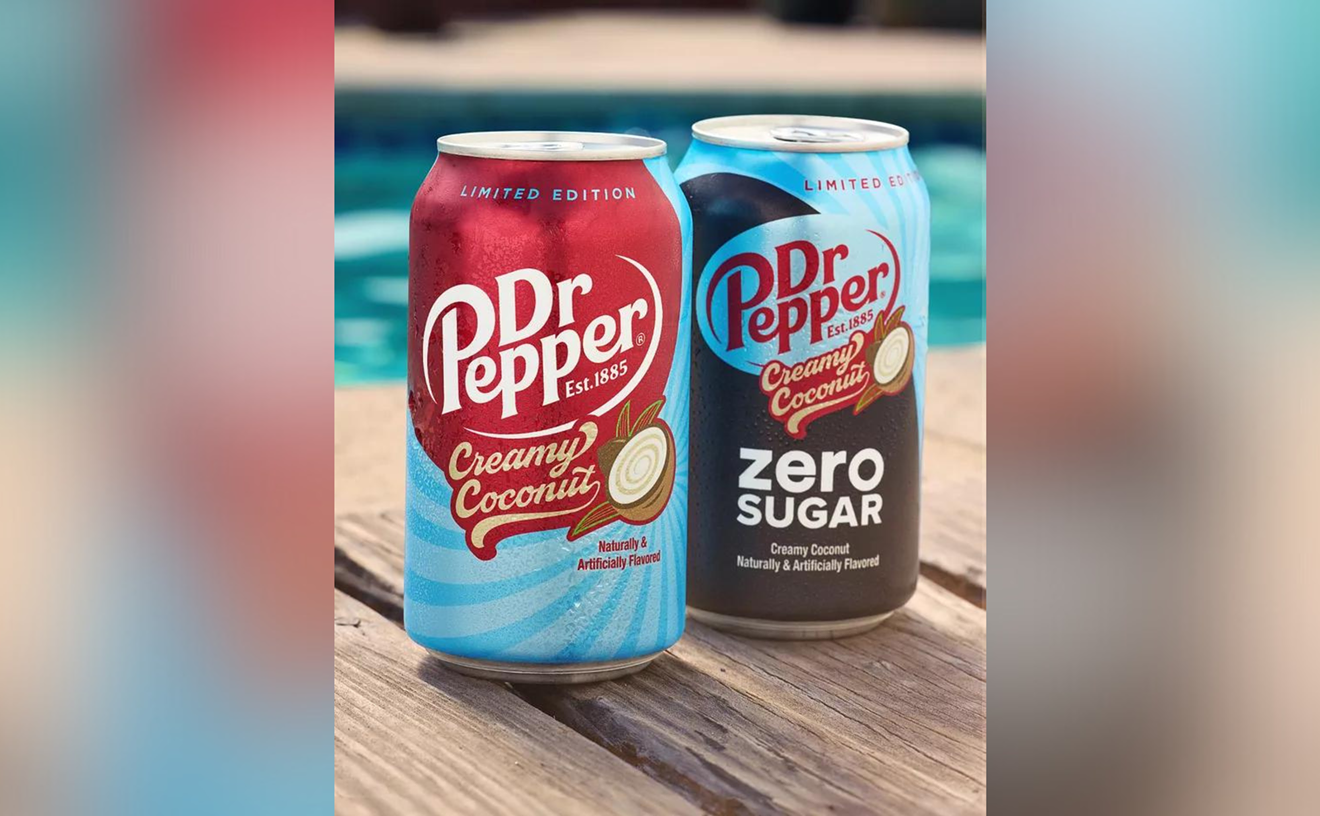Described by its makers as “the health documentary that health organizations don’t want you to see,” the film has prompted many former carnivores and vegetarians to declare on social media that they have decided to become vegan after watching it — and vegan eateries in the Dallas area are hearing from them, too.
Sara Tomerlin, the owner and operator of Spiral Diner & Bakery’s Oak Cliff location, says she’s heard comments from customers about the documentary and seen its ripple effects firsthand.
“I had a new couple in the diner last week who were transitioning to a vegan diet after seeing What the Health,” Tomerlin says. “I do think it has an impact on society, and it definitely brings new customers to our restaurant.”
Troy Gardner, the chef-owner of V-Eats Modern Vegan at Trinity Groves, has noticed a shift as well.
“In the past few days alone, I’ve come into contact with five different individuals who said they went vegan because of this documentary,” Gardner says. “And just 10 minutes ago, the gentleman who services our dish machine at the restaurant was telling me how he and his wife have just gone vegan. Yesterday was their first day, and he cited What the Health as the thing that pushed them over the edge.”
Co-directed by Kip Anderson and Keegan Kuhn (Cowspiracy), What the Health follows Anderson’s journey into a system he sees as corrupt, wherein the USDA and other national health organizations seem to be putting the interests of their donors, which include fast food corporations and purveyors of processed meats, over the health and wellbeing of the people they purport to serve.
One of the film's most cogent arguments concerns the direct link between cancer and processed meats: hot dogs, bacon, sausage, ham, salami, pepperoni, deli slices, etc. As Anderson notes in the documentary, the World Health Organization classifies processed meats as a Group 1 carcinogen — the same group as cigarettes, asbestos, and plutonium — and classifies red meat as a Group 2 carcinogen.
“If processed meats are labeled the same as cigarettes,” Anderson argues, “then how is it even legal for kids to be eating them?”
In the documentary, Anderson also is disturbed to find that the “Eat Healthy” page on the American Cancer Society’s website recommends recipes with processed meats. This makes more sense, however, when Anderson discovers that the American Cancer Society takes money from Tyson Foods and Yum! Brands (owner of KFC, Pizza Hut, and Taco Bell), and that the American Diabetes Association, American Heart Association, and Susan G. Komen Foundation are similarly culpable.
According to Anderson, “every single one of these organizations is taking money from the meat and dairy companies that are associated with the causes of these diseases.”
Though many of Anderson’s other arguments are specious at best — for example, his claim that eating one egg a day is equivalent to smoking five cigarettes a day comes from one dubious and roundly contested study — What the Health has succeeded in inspiring nonvegans to investigate and talk about the benefits of a plant-based diet with each other.
The buzz also bodes well for local vegan businesses looking to broaden their clientele.

Spiral Diner's owners say it has seen an uptick in business with the release of pro-vegan documentaries. The vegan restaurant serves vegan nachos.
Beth Rankin
Nancy Castillo, who co-owns the all-vegan Reverie Bakeshop in Richardson with her friend Racene Mendoza, says she has heard "both good and bad responses" from popular, pro-vegan documentaries like What the Health, Cowspiracy and Forks Over Knives.
"On the good side, these documentaries expose the corruption of our current food industry practices and organizations,” Castillo says. “People feel as though we are pawns in the corporate game, and some decide to go vegan and retaliate. Others feel thankful that plant-based diets are being talked about at all.
"On the bad side, documentaries like these often create divisions in our society, as though all vegans are militant or use scare tactics," Castillo continues. "People are very defensive when it comes to traditions and food. Many people struggle dealing with the reality of things ... and being told that your choices are wrong can be hurtful in a way."
But Tomerlin says that with the internet providing more access to information than ever before, people seem more open to changing their minds.
“[At Spiral], we always hear comments like, ‘I can give up meat, but I could never give up cheese!'" Tomerlin says. "It seems like the general public is at least friendly with a plant-based diet. Ten years ago, it was more stigmatized; people were extremely worried about being able to get enough protein without meat and eggs."
Tomerlin adds that with more education, as well as more vegan restaurants and vegan groceries popping up in Dallas and around the country, she’s also noticed that arguments against a vegan lifestyle have lessened.
“It mainly comes down to convenience,” Tomerlin says. “Most people can get on board with cruelty-free living and healthy alternatives, as long as it’s accessible to them.”












